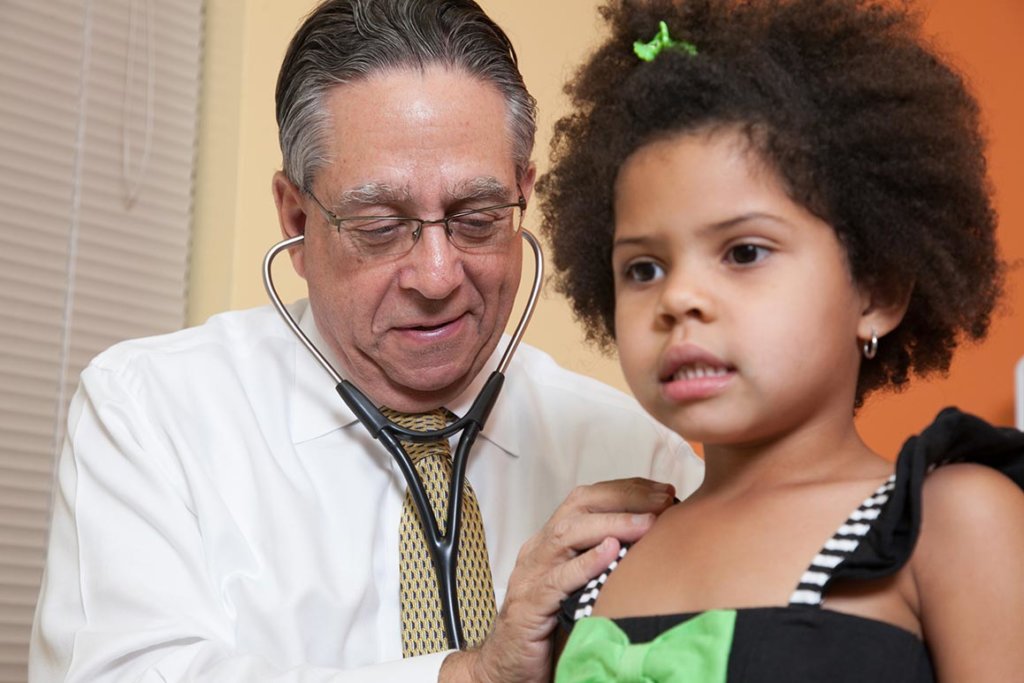Community Engagement Tools to Help Latino Families Keep Health Coverage
UnidosUS Affiliates across the country have been supporting Latino families to keep health coverage during Medicaid unwinding. They have found many successful community engagement strategies that can be utilized both during the remainder of Medicaid unwinding and for other community engagement goals.
By Hannah Garelick, UnidosUS Health Policy Team
Starting in April 2023, states began redetermining Medicaid eligibility and terminating families from Medicaid for the first time since the COVID-19 public health emergency began in early 2020. In just six months of the unwinding, more people lost Medicaid than during any two-year period in American history. Communities of color are suffering disproportionate losses. Families are primarily facing losses in Medicaid due to either the state finding they are ineligible or the state terminating an eligible family because of missing paperwork. Across the country, 70% of all terminations have fallen into the latter category, causing many eligible families to face uncertain health coverage. Some states are experiencing chaotic Medicaid redetermination efforts that have made it particularly challenging for Latino families to navigate a confusing system successfully.
One of the most critical interventions to protect Latino families’ health coverage is to ensure they receive hands-on help from trusted and skilled community agencies, like UnidosUS Affiliates. Every state has utilized different systems in conducting this renewal process. Affiliates have been finding culturally competent practices to reach community members and successfully support families in maintaining health coverage, despite enormous challenges. Here are some strategies that Affiliates have found to be helpful and might be useful in your community as well.
Meet people where they are.
- Finding places to meet people where they are most likely to gather creates natural opportunities to build relationships and opens a space to engage new or returning clients in your organization’s services, including work to preserve Medicaid during unwinding.
- Community spaces include churches, high-trafficked grocery stores, or apartment complexes.
Look for partner events with opportunities to table or present.
- Opportunities to partner or join community events can allow you to engage with a community of people who may not be in your usual base. This provides a chance to meet people who may have yet to come in contact with your organization.
- Event opportunities include food or clothing drives, community health events, job fairs, flea markets, farmer’s markets, church fairs, or county and state-sponsored events.
Make sure you have materials on hand.
- While preparing to table, present, or meet people in the field, ensure you have easy-to-read materials, like English-Spanish flyers, to share about your organization’s services and share information specific to Medicaid unwinding.
- Ensure that your staff, whether outreach team or community health workers, can utilize resources to assist in the field. Investing in resources like laptops, hot spots, and cell phones can help your staff set up appointments, fill out applications, and upload documentation while meeting with potential clients in the field.
- Find a way to collect names and contact information to allow for follow-up, even if you are not providing direct assistance at the event. Be transparent that you are asking for contact information and are planning to follow up. If someone declines, that’s ok!
- You can use creative methods to collect names and contacts, like a raffle or a “guess how many candies are in the jar” to bring excitement to your table and get the opportunity to connect with people after the event.
Utilize Internal Resources.
- If your organization has a clinic department that might not constantly interact with your outreach team or community health workers, see if they can share a list of individuals or families with upcoming or past due Medicaid renewal dates and call individuals to proactively offer assistance.
Utilize External Resources.
- Many organizations and agencies have developed resources in both English and Spanish. UnidosUS has a dedicated Medicaid unwinding webpage with resources, including a pair of English and Spanish trainings for staff of community organizations assisting families with Medicaid renewals.
- The Centers for Medicare and Medicaid Services (CMS) has continued to produce resources and guidance, including population-tailored webinars. You can learn more about their resources and sign up for updates on their website.
Create connections with agency administrators and outstationed Medicaid eligibility workers (EWs).
- It’s important to develop relationships with local and state Medicaid agencies and staff. Having a good working relationship with agency administrators can ensure that questions or issues that arise with applications can be addressed quickly. Depending on the state, there may also be opportunities to gain approval to interact directly with Medicaid’s eligibility system, allowing you to help families upload documents.
- Every Federally Qualified Health Center (FQHC) must have an outstationed eligibility worker (EW) or provide an equally effective alternative. By building a good working relationship with outstationed EWs, Affiliate staff can become force multipliers who help preserve coverage for more Latino families. Outstationed EWs might give your community health workers insight into how best to help families obtain successful renewal outcomes. Reach out to discuss trends in your area and identify a few items to help families be best prepared for their Medicaid renewal. This might include learning the most common missing paperwork to be proactive with families in identifying how to ensure complete renewal applications are submitted, or conducting appointment reminder calls to reduce no-shows. And if an FQHC does not have an outstationed eligibility worker, consider reminding state officials of their legal duty to provide that service to your community.
Finally, follow up.
- Following up with families is critical. It can be time-consuming, and it’s possible that many families might not respond. However, having multiple points of contact with families that you are supporting can help lead to successful Medicaid renewals. Reminders about appointments, important deadlines and essential documentation can help ease the administrative burden many families face during Medicaid renewal.
Helping families keep health coverage is challenging during this time of Medicaid unwinding. Many barriers make it difficult for Latino families to have all the resources they need to keep necessary health coverage. You know your community and staff best. Finding strategies that best suit your staff capacity and community will always be the most successful. Implementing some of these strategies can help promote effective community engagement to support successful family outcomes and increase community involvement in your organization.




